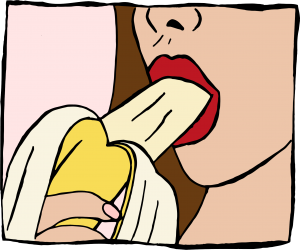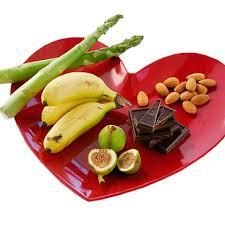aphrodisiacs

The word word Aphrodisiacs is derived from Aphrodite, the Greek goddess of love (called Venus by the Romans). Aphrodisiacs are substances that can increase the desire to have sex.
History of Aphrodisiacs
The idea of potions or other magic ways to stimulate potency in the male or sexual desire in the female, is very old. Egyptian recipes of 5000 years ago already refer to the preparation of extracts from flowers, herbs and plants mixed with honey and other ingredients that were said to have a stimulating effect on the libido. Even older are herbal concoctions from ancient China, and many other substances to which magical powers have been attributed for thousands of years, such as brains, testicles, or finely ground bone from powerful animals, such as the tiger, elephant or rhinoceros, which is the main reason why these animals are still hunted today. If one broadens the definition of ‘aphrodisiac’, it will include many more substances that get us in the mood. The most popular is alcohol. It breaks down inhibition and facilitates intimacy and experimentation. Other drugs are known for their effect on the experience of sexual ecstasy, the kick of an intense orgasm. The adverse effects of these and other substances, especially if used immoderately (addiction), is well-documented.
Aphrodisiacs: sexual desire
Extending the concept of ‘aphrodisiacs’ further, there is no doubt that many types of food have a positive effect on the sense of well-being that goes together with sexual desire. Chocolate, oysters, peaches, red meat, spices and herbs are well-known, but actually every type of dish, if it is colourful, well-cooked and flavoured, will have a mellowing effect. The custom of eating together when beginning a romantic relationship is universal, and eating nearly everywhere is part of the wedding ceremony (see wedding rituals and superstition), symbolizing the sexual pleasure of life. Even more generally speaking, every aspect of our appearance and behavior has some aphrodisiac value. Typical positively stimulating qualities are beauty, youth and health, while the old, ugly, and sick have a negative erotic effect on us, as have unpleasant, unkempt, vulgar, noisy, arrogant and sarcastic behaviour. This is why lovers are at their best behaviour. It is the sexual desire itself that makes them present themselves in the most favourable light possible, because only if they make themselves desirable, can they hope to win the other over to have sexual intercourse and/or find a steady partner.
Aphrodisiacs: social upbringing and cultural conditions
Social upbringing and cultural conditions also play a part in the regulation of desire. We are programmed genetically and culturally to find the other sex more attractive than our own, to find other races, social classes, nationalities less attractive (or more repelling) than our own. Thus the arrangement of partners in sex is very severely confined to certain categories of individuals. Minority attractions exist, showing that humans can break through the natural and cultural limitations on love. Gender, age, race, or religion can be overcome by loving desire, which is the greatest aphrodisiac of all. However, such individuals usually find themselves under even more pressure than well-adapted couples. If they conform to society and marry, they have a greater chance of becoming divorced.
Aphrodisiacs: the market
But even in the normal couples the passionate and dedicated bliss of perfect sexual fulfilment -the natural aphrodisiac- wears off, especially after it leads to marriage and family life. In other words, sexual attraction and stimulation decrease. It is this category that mainly uses aphrodisiacs in the narrow sense of the word. They want to maintain sexual fulfilment with each other while the natural inclination to do so has waned. This explains the considerable market for aphrodisiacal pills, potions, advice and therapy.
